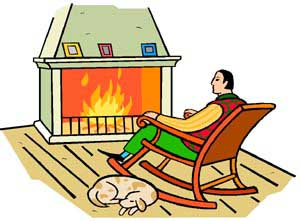 The right dog for you, whether you’re considering a purebred or a mixed bred dog, should always be the result of taking the time to research the dog’s breed. This research will help you to determine whether your new dog will fit your life style.
The right dog for you, whether you’re considering a purebred or a mixed bred dog, should always be the result of taking the time to research the dog’s breed. This research will help you to determine whether your new dog will fit your life style.
One of the biggest mistakes you can make (for you and the dog) is getting the wrong dog.
If you are thinking of a mixed breed, you need to look at the information about all of the mixes and that way you will know what to expect from your new dog. It will also make your shelter search for the right dog much easier if you already know that you want “a dog that has some previous training” or “something the size of a lab” or “some with the energy of a beagle.”
Making sure you get the right dog requires that you know the history and breed characteristics of the dog. This will give you the proper insight into what the dog will need for exercise, feeding and training. If you think you already know what breed you want, you may still want to spend some time researching it. You may learn something new – or you may find that the “right dog for you” is something much different than you hadn’t considered before.
If you have a question, be sure to ask. There are a lot knowledgeable people out there and they are very wiling to help you find the right dog. We will also be glad to offer suggestions when you want to choose a breed. When asking others, you should expect to hear the negatives as well as the positives about a breed. This is not intended to scare you away. On the contrary, you should be really sure that the breed you are choosing is the right one for you. There are over 400 recognized breeds of dog in the world today and no one breed is right for everyone.
Here are some questions for you to consider when you’re looking for a dog.
- What size dog is right for you?
When you begin your search for the right dog, don’t just ask for a “small dog” or a “large” dog because, for some people a large dog may be 25 pounds, for others it may mean 75 pounds. A better way to refer to the size of the dog you are looking for would be, “something the size of a Miniature Pincher, a Cocker Spaniel or a German Shepherd Dog”.
- Which sex do you want, male or female? There are pros and cons to either sex, but unless you plan to breed them it really doesn’t make much difference because most dogs are spay or neutered before you adopt them. If you have a preference, get the sex you want. If you are not sure, just look for the right dog that fits your needs.
- How much space do you have?
This question could be “Part B” of the first question. Although it’s quite possible to successfully keep a larger dog in a small house or apartment, it can be a lot more of a challenge because you will need to provide plenty of opportunities for exercise outside the house or apartment. If you don’t, the dog may become destructive. One thing to keep in mind is that if your house is very small, a Newfoundland or a Great Dane may take up all of your room and you may not have any room for your furniture.
- How much time will you have to exercise your new dog?
Some smaller breed dogs can get by with a short walk, but others need to be walked or ran for an hour or more every day. You need to be honest with yourself and decide what amount of time you are willing or able to spend with your dog. Be sure to consider both, your physical abilities and your time schedule. If you’d like to own an active dog but your job keeps you busy 10-12 hours a day, you may not want to get a really active dog. Active dogs need to go for long walks or runs with you every day, not just on weekends when you don’t have anything better to do. An active dog would be miserable (and probably very destructive) during the work week if you can’t spend the time to exercise him properly.
- How much training can you do?
Regardless of what kind of dog you decide to adopt, a trained dog will be much easier to live with. A well trained dog can go to more public places with you. This is because they cause less of a disruption. A well trained dog will also be more easily integrated into your life. Obviously a puppy will need more of your attention, while most older dogs have had at least some training and will therefore take less time to train.
- Where will the dog live?
In the past few years a lot of individuals and professionals have adopted the opinion that dogs who live outside are more apt to be neglected and abused than those who live inside. They feel very strongly that all dogs should live in the house. Although most any dog will do well inside if it is given enough exercise, some dogs (given proper shelter and attention) are also equipped to live outside even in the coldest winter conditions or in the hottest summer conditions. Some perfect examples of this are the Labrador Retriever, the German Shepherd and the Siberian Husky. They all are capable of handling the cold weather, but don’t really do to well in the heat of summer because of their double coat of fur. If your new dog will be spending any time outside, you must consider your area’s climate when you are choosing a breed. If your dog must live outside, be sure that it has adequate (enclosed, covered, maybe even heated or cooled) shelter, and make an extra effort to spend time making sure that your dog has enough food, water and shelter during severe hot and cold weather conditions.
- How much grooming are you willing to do or pay for?
Dogs that have long or curly hair will require you to spend more time to keep their coat free of tangles and mats. These types of breeds will require a lot more time on your part to keep them properly groomed and if you can not do it yourself it will cost you more money to have a dog professionally groomed on a regular basis. Many of these breed types may require regular grooming every 6-8 weeks. Even short haired dogs like the Dalmatian, the Chihuahua and others that are fairly low-maintenance can go through periods of profuse shedding and their coats will need extra attention. No matter what breed you choose, all dogs need to have their nails, eyes, and ears taken care of on a regular basis.
- What do you plan to do with your dog?
Are you looking for a watchdog, a loyal “fireplace” dog, or a running partner? Maybe you want an active and athletic dog that you can do things like agility training, hiking, herding or hunting. You might even be looking for a dog that you can train for Police Work, Therapy Work or as a Service Dog for you or a loved one. The reason you want or need a dog can really affect your breed choice because, for example, most toy breeds just don’t make very good Police dogs.
- What kind of past experience do you have with dogs?
Everyone has a first dog at some point. After all, we all had to start some where. But it’s important that you know that there are a few breeds that are not recommended for first-time owners. For instance, an older Dachshund is a lot easier to care for than a one year old Husky, a Bull Dog or a Border Collie.
- Are there other family members in your home and are they all willing to teach, and care for the dog?
Adopting a dog should be a family decision and all family members should be a part of raising the family dog. Teaching children to properly care for and train a dog can make a lasting impression on them. Learning how to control and train a dog can help build self esteem and help them become better with people too.
- I have kids, what kind of dog is best around kids.
The answer to this question depends more on how the dog is raised and trained than what breed it is. No matter what breed you choose, supervision of the dog and the children is critical when they are with the dog, Just because a dog is usually good with children, you still need to supervise the activity because children can sometimes get carried away and may not realize that every dog has its breaking point. If you are unsure of your ability to properly train young puppies and/or children in this respect, you may want to consider waiting until the children get older, or find an adult dog known to be good with children under any circumstance.
Finally, if you already have a dog or two in mind, don’t forget to think about the breed and the job that breed was meant to do. There are only a few breeds that were specifically developed to be pets. Most breeds of dog were originally bred to be hunters, herders, guards, or some other job which might be in conflict with your expectations of a perfect pet. For instance, if your lawn is important to you, you might not want to adopt a terrier; almost all breeds of terrier will dig relentlessly. If you don’t have a lot time to exercise a dog, you probably won’t want to get a Greyhound, a Dalmatian, a Husky, any kind of pointer or retriever, or most of the Herding breeds — all of these dogs were bred to run for many miles without getting tiring. Remember, if there is no breed specific work for them to do, they still crave the challenge and the exercise because it is part of their DNA. If you don’t give it to them, they’ll find ways to let you know that they don’t have enough to do. Most of these ways are very destructive.
